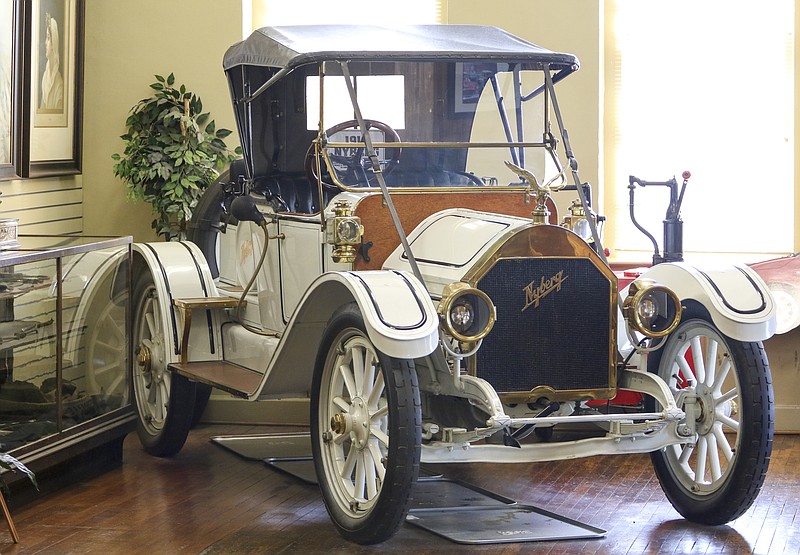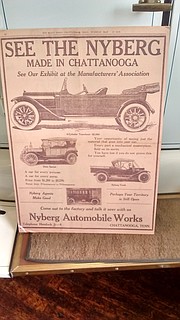Volkswagen builds its Passat in Chattanooga, and VW plans to build a new sport-utility vehicle here starting later this year.
But if you think Volkswagen was the Scenic City's first car-maker, think again.
About a century before the German car-maker made its mark in Chattanooga, Swedish-born Henry Nyberg built cars and trucks at a factory on George Street (which no longer exists) and Buckley Street (it's still there) near the intersection of Dodds Avenue and E. Main Street.
"Chattanooga Made, Correctly Made," was the motto for the Nyberg Auto Co. It produced a dozen models of cars, including the "Dixie Flyer" and "Dixie Special." Nyberg prices ranged from $1,950 to $2,550, which was a lot in those days, when a Model T Ford cost around $600 to $700. Four types of Nyberg trucks cost between $1,450 and $3,750 each.
The factory here opened in 1912, a year after Henry Nyberg met with Chattanooga businessmen, including members of the Patten family that founded what's now Chattem and built the once-glamorous Hotel Patten, now Patten Towers, to come up with $20,000 needed to open the plant.
The Chattanooga factory was built to serve the Southern market. Before the 1920s the South had roads with rutted tracks from horse-drawn vehicles that were a standard 56 inches wide - four inches narrower than in the Northern states, according to a history of Nyberg in the 1986 edition of Chattanooga Life and Leisure.
The main Nyberg Auto Co. factory had opened in 1910 in Anderson, Indiana. Prior to that, Henry Nyberg - who first put his name on a one-cylinder car in 1903 - worked out of a shop in Chicago.
Nyberg used off-the-shelf parts to build his cars, including the four- and six-cylinder Excelsior and Rutenber engines. Options for the open-topped cars included a mohair roof. Headlights were either acetylene running lamps or electric lights.
A six-cylinder "Tourabout" was one of the cars built in Chattanooga. It took part in the Indiana Four States' Tour in 1912 that started in Indianapolis and ran 1,500 miles through Indiana, Ohio, West Virginia and Kentucky and back to Indianapolis.
"The Chattanooga-made car is certainly doing well and is creating quite a sensation," Henry Nyberg wrote in an account of the tour that he wrote for July 21, 1912 edition of the Chattanooga Times.
A Nyberg truck was outfitted "with a musical instrument something on the order of an organ," Nyberg wrote, powered by the truck's motor that played the "Merry Widow Waltz" along with other popular songs of the day.
"We made every effort possible before the start of this tour to induce the manufacturers to go south, passing through Chattanooga, but failed to succeed," Nyberg wrote. "However, we are in hopes that next year's 'Indiana four states tour' will pass through Chattanooga."
But it was not to be. The Nyberg Auto Company was forced into bankruptcy in 1913. The 1914 Nybergs were the last to model year to be built in Chattanooga. Henry Nyberg moved back to Sweden.
A 1912 Nyberg is on display at the Coker Tire Museum at 1317 Chestnut St. in downtown Chattanooga.
The late Harold Coker told a newspaper reporter in 1976 that his heart "skipped a beat" when he found the car during a visit to antique car show in Pennsylvania. He bought it on the spot, had it restored and first put it on display that year.
Artist Gordon Wetmore did a 1977 painting of the Nyberg surrounded by Chattanooga personalities that's still on display around town, including in Wally's Restaurant at on McCallie Avenue and in the Hamilton County Commission's fourth-floor meeting room in the historic county courthouse on Georgia Avenue.

